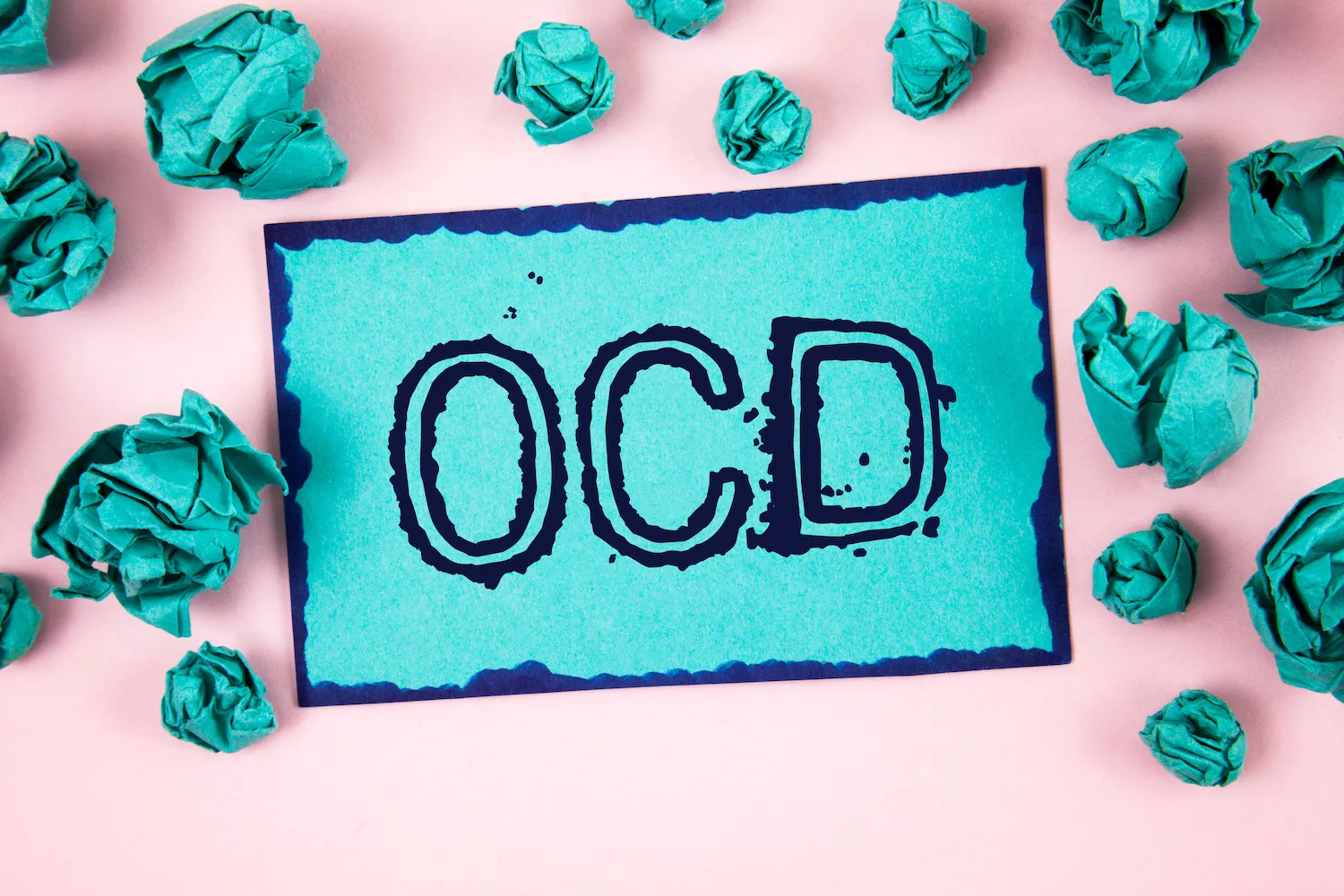Mental Health Evaluation Process & Tools
Everything You Should Know About Mental Health and Psych Evaluation
Mental health is an integral part of our overall well-being and understanding it has become increasingly important in today’s fast-paced and demanding world.
This free guide provides you and other mental health specialists with a detailed step-by-step overview for conducting the best level of mental health psych evaluation. It offers you a deeper understanding of what mental health and psych evaluation entails and highlights mental health assessment examples, screening test for mental health methods, and associated risks.

Everything You Need to Know about Mental Status Assessment & Mental Health Scale
Are you ready to learn more about psych evaluation and mental health assessment in general, including best practices? Are you interested in hearing how mental health assessment tools and techniques have evolved to provide valuable insights that help mental health workers address potential challenges?
If so, let’s jump right into it!


See Also: Questions Therapists Ask Clients with Examples
Would you like to share feedback on this mental status assessment guide? Are there any mental health assessment examples that have provided great value to you that we can include in this guide for other practitioners to leverage? If so, contact the Social Work Portal Team.
Table of Contents: Guide on Mental Health Evaluation Process
Keep on scrolling down this page to read each section or click any link below to go directly to that section.
- What is Mental Health Evaluation? | Mental Health Assessment Introduction
- What is Psych Evaluation?
- Main Types of Mental Health Assessments
- Mental Assessments & Mental Health Evaluation Tools
- Triage Mental Health Assessment
- Mental Health Risk Assessment
- Psychiatric Assessment Overview | Psychiatrist Assessment Test
- Occupational Therapy Assessments for Mental Health
- Mental Health Assessment Nursing | Nursing Mental Health Assessment Examples
- Benefits of Mental Health EHR Systems
- Conclusion | Mental State Assessment
- FAQ | General Mental Health Assessment Questions & Answers
Don’t Miss: Best Guide to Launch, Manage, and Grow Psychologist Practice
We’ll start by quickly going over the basics of what is mental health evaluation.
What is Mental Health Evaluation? | Mental Health Assessment Introduction
Mental health evaluation is a comprehensive and systematic process used to assess an individual’s mental health status, functioning, and overall well-being.
Mental health evaluation is a fundamental component of mental healthcare, providing valuable insights into person’s needs and guiding the development of appropriate treatment plans.
In general usage, the terms “mental health assessment” and “mental health evaluation” are often used interchangeably and refer to a similar process of assessing an individual’s mental health.
 What You Should Know About Mental Health Assessment Online
What You Should Know About Mental Health Assessment Online
Both mental health evaluation and mental health assessment involve the systematic evaluation of a person’s mental and emotional well-being. They both also aim to gather information about an individual’s mental health status, functioning, and potential mental health disorders.
While there may be some variation in how the terms “mental health assessment” and “mental health evaluation” are used in specific contexts or by different professionals, they generally refer to the same process of assessing and evaluating mental health.
If you’re looking for mental health assessment online options? Look no further!
Social Work Portal’s Case Management Hub has got you covered. Our mental health online evaluation software comes equipped with mental health assessment online forms that you can adjust and send to your clients.
What is NHS Mental Health Assessment? | Mental Health Act Assessment
A Mental Health Act assessment, also referred to as an NHS mental health assessment, is a formal evaluation process conducted under the provisions of the Mental Health Act within the National Health Service (NHS) in the United Kingdom.
Mental Health Act assessment is designed to determine whether an individual meets the criteria for compulsory admission to a psychiatric hospital or involuntary treatment due to their mental health condition.
The Mental Health Act assessment provides a legal framework that governs the assessment, treatment, and rights of individuals with mental health disorders.
NHS mental health assessment involves gathering information through interviews with the individual, family members or caregivers, and reviewing relevant medical records.
It’s important to note that the procedures and terminology related to Mental Health Act assessment and NHS mental health assessment may differ between countries. The information provided here pertains to the Mental Health Act assessment within the context of the NHS in the UK.
Next, we’ll take a look at psych evaluation to get a good understanding of differences and similarities between psych evaluation and psychiatric assessment.

Related: Best Guide on Mental Health Intake Assessment
Do you have any further information about mental status assessment or mental health assessment examples that you think we should include in this guide? If so, contact the Social Work Portal Team.
What is Psych Evaluation? | Difference Between Psych Evaluation and Psychiatric Assessment?
A psychological evaluation, also known as a psych evaluation, is a comprehensive mental state assessment conducted by mental health professionals to gain insight into an individual’s psychological functioning, personality traits, and emotional well-being.
Psych evaluation process involves the use of various mental health assessment questions, assessment tools, behavioral health assessment, interviews, and observations to obtain a comprehensive understanding of an individual’s psychological state.
Psych evaluation may be conducted for a variety of reasons, including:
- diagnostic purposes
- treatment planning
- research
- forensic evaluations, and
- organizational assessments.
Our Client & Case Management Hub is ideal for conducting both psych evaluation test online as well as any other mental health assessment online.
It comes loaded with mental health assessment form resources, depression and anxiety self assessment quiz options, psych evaluation test online tools, and so much more.
What is the difference between psych evaluation and psychiatric assessment?
A psychiatric assessment has a main focus on diagnosing and treating mental health disorders from a medical perspective.
Psychiatric assessment is typically conducted by psychiatrists, who are medical doctors specializing in mental health.
Additionally, psychiatric assessment typically involves evaluating an individual’s mental health symptoms, diagnosing any mental health disorders, and developing a treatment plan, which may include medication management.
With basics of psych evaluation covered, we’ll move to the main types of mental assessments and mental health evaluation process.
Do you have any questions about mental health measurement or scales for measuring mental health? Do you have insight into clinical assessment depression or depression and anxiety self assessment quiz that you would like to share? If so, contact the Social Work Portal Team.
Main Types of Mental Assessments & Mental Health Evaluation
There are several types of mental assessments and mental health evaluations used by healthcare professionals to assess and evaluate an individual’s mental health.
So, what are the main types of mental health assessment?
Here is a breakdown of the different types of mental health assessments:
Adult Assessment – Mental Health Assessment Online
Mental health assessments for adults focus on individuals who are 18 years of age or older.
Mental health assessments for adults involve gathering information about the individual’s current mental health status, symptoms, and functioning.
The mental health assessments for adults may include:
- clinical interviews
- self-report questionnaires
- observation of behavior, and, if necessary,
- collateral information from family members or significant others.
Our Client & Case Management Hub has all of that and more!
This vault of mental health assessment form resources, free mental health assessment printables, and a variety of mental health assessment quiz forms is all you need to stay on top of your mental health examination process.
Sign up for your All-in-One Client and Case Management Software & experience the ease of mental health assessment online process.
Child Assessment – Mental Health Assessment Online
Full mental health assessment for children is tailored as a mental evaluation test for the mental health and developmental needs of children and adolescents.
Child mental health assessment typically involves gathering information from multiple sources, including parents, teachers, and the child themselves.
Child mental and behavioral health assessment may include:
- structured interviews
- behavioral observations
- standardized rating scales, and
- developmental assessments.
 Clinical Assessments for Mental Health
Clinical Assessments for Mental Health
Our Client & Case Management software is a great mental health online evaluation software that gives you the ability to centralize all your mental assessment test resources, intakes, and other mental health assessment psychological assessment form templates.
Get your mental health assessment All-in-One Case Management Hub and revolutionize your mental health practice today.
Geriatric Assessment – Mental Health Assessment Online
Geriatric mental status assessment measures or mental health assessment for elderly are designed specifically for older adults, typically aged 65 and above.
Geriatric full mental health assessment or mental health assessment for elderly takes into account age-related factors, such as physical health, cognitive functioning, and social support systems.
Geriatric mental health assessment aims to evaluate the mental health status of older individuals, identify any age-related cognitive impairments, detect signs of dementia or other neurocognitive disorders, and assess the impact of mental health on overall well-being.
These types of mental health assessments may involve:
- clinical interviews
- cognitive tests
- functional assessments, and
- collaboration with other healthcare professionals.
This is exactly what our All-in-One Client and Case Management Hub was created for. We’ll take a look at different behavioral health practice management tools and psych evaluation test online options next.

Popular Article: Child Mental Health Assessment and Questionnaire Guide
Tools Used for Mental Assessments & Mental Health Evaluation
There are several types of mental assessments and mental health evaluation tools used by healthcare professionals to assess and evaluate an individual’s mental health.
Here are some common types of mental health assessment and mental health evaluation tools:
Clinical Interviews | Mental Health Examination
Clinical interview involves a conversation between a mental health professional and the individual to gather information about their symptoms, personal history, and current mental state.
This type of mental health examination helps in forming an initial understanding of the person’s mental health.
Here are some mental health assessment examples of clinical interviews:
Intake Interview: This is typically the initial interview conducted when a person seeks mental health services or mental health examination.
Intake interview involves:
- gathering comprehensive information about the individual’s presenting concerns
- medical history
- family history
- social and developmental background, and
- current life circumstances.
There are different mental health assessment online resources, such as our All-in-One Client & Case Management Software which allows you to say goodbye to paper intake interviews and move your process of mental health assessment online.
Diagnostic Interview: Mental health professionals may use structured or semi-structured mental health examination interviews based on diagnostic criteria, to assess for specific mental disorders.
These mental state assessment interviews consist of a standardized set of mental health assessment questions designed to elicit information about symptoms and aid in making accurate diagnoses.
Psychosocial Interview: Psychosocial interview delves into an individual’s social and environmental factors that may impact their mental health.
This type of interview can be conducted in person or as a mental health assessment online form.
It explores various psychosocial domains, such as:
- family dynamics
- interpersonal relationships
- work or school functioning
- living situation, and
- cultural factors.
Mental Status Examination (MSE): The MSE is a structured mental status assessment used to evaluate an individual’s current mental state.
Mental status assessment involves a systematic examination of the person’s:
- appearance
- behavior
- speech
- mood
- affect
- thought processes
- cognition, and
- insight.
During the mental status assessment, the clinician will ask specific questions and observe the individual’s responses to gather information about their mental functioning.
Regardless of whether you’re conducting MSE in person or using online test for mental disorders software, it is crucial to ensure that the assessment is conducted by a qualified mental health professional and that the results are interpreted within the appropriate clinical context.
Crisis Assessment Interview: This interview is conducted during a mental health crisis or emergency situation.
It aims to assess the person’s immediate safety, level of distress, and risk of harm to themselves or others.
Looking for reliable mental health assessment online software that lets you manage all your cases, clients, mental health measurement tools, and mental health assessment psychological assessment form resources in one centralized place?
Do you know of any depression test assessment or other mental evaluation test that you would like to share with other mental health practitioners? If so, get in touch with Social Work Portal Team.
Psychological Testing | Mental Health Examination
This includes a variety of mental health assessment test options designed to assess different aspects of mental health, such as cognitive abilities, personality traits, emotional functioning, and specific mental disorders.
Mental health assessment examples of psychological testing include:
Intelligence Tests – Mental Health Assessment Quiz
Intelligence tests assess an individual’s cognitive abilities, including:
- verbal comprehension
- perceptual reasoning
- working memory, and
- processing speed.
These mental state assessment tests provide a measure of intellectual functioning and can help identify intellectual disabilities or giftedness.
Personality Tests – General Mental Health Assessment
Personality mental health evaluation tests evaluate an individual’s enduring patterns of thoughts, feelings, and behaviors.
These types of mental health assessments serve to assess various personality traits, such as:
- extraversion
- neuroticism
- conscientiousness, and
- openness to experience.
Projective Tests
Projective screening test for mental health aims to explore an individual’s unconscious thoughts, emotions, and conflicts through their responses to ambiguous stimuli.
The Rorschach Inkblot Test and the Thematic Apperception Test (TAT) are examples of projective tests.
These types of projective screening test for mental health provide insight into a person’s subjective experiences, perceptions, and underlying psychological processes.
 Screening Test for Mental Health
Screening Test for Mental Health
Neuropsychological Tests – Mental State Assessment
Neuropsychological tests are mental health assessments for adults and children that assess cognitive functions, such as:
- attention
- memory
- language, and
- executive functioning.
These mental health scale and diagnostic assessment tests help identify deficits or impairments related to:
- neurological conditions,
- brain injuries, or
- neurodevelopmental disorders.
Depression and Anxiety Scales for Measuring Mental Health – Online Test for Mental Disorders
Various self-report scales for measuring mental health are available to measure the severity of depressive and anxiety symptoms.
Examples of mental health scale and depression and anxiety self assessment quiz include the:
- Beck Depression Inventory
- Hamilton Rating Scale for Depression, and
- Generalized Anxiety Disorder 7-item Scale (GAD-7).
These mental health scale options help assess the presence and severity of depressive and anxiety disorders. They also come as psychological evaluation test online forms that you can easily distribute to your clients.
If you’re looking for software that’s HIPAA secure and gives you the ability to safely store all your clients’ mental health electronic health records in one place, make sure to join All-in-One Case Management Platform.
Our best EHR for behavioral health comes with a pre-made psych evaluation test online and many other printable mental health assessment form templates that you can easily send to your clients.
Mental Health Diagnostic Assessment Tools for Autism – Mental Health Online Evaluation
These are psychological tests specifically designed to assess autism spectrum disorders.
These mental health diagnostic assessment tools assess social communication skills, restricted and repetitive behaviors, and other characteristics associated with autism.
Attention-Deficit/Hyperactivity Disorder (ADHD) Rating Scales –Psychological Evaluation Test Online
Rating mental health scale and mental health examination are used to gather information from multiple informants, including the individual, parents, teachers, or caregivers, to evaluate attention difficulties, hyperactivity, and impulsivity.
Mental health scale for ADHD examples such as the Conners’ Rating Scales or the ADHD Rating Scale, are used to assess symptoms of ADHD in children, adolescents, and adults.
It’s important to note that the selection of a specific mental health assessment test depends on the purpose of the assessment, the age and developmental level of the individual, and the expertise of the clinician conducting the evaluation.
Psych evaluation and testing is typically combined with clinical interviews and other mental health assessment test methods to provide a comprehensive understanding of an individual’s psychological functioning.


Read More: Best Guide to Building Private Psychotherapy Practice
Do you know of any mental assessment test or mental health assessment quiz that you would like to share with our audience? Click here to contact the Social Work Portal Team.
Self-Report Questionnaires | Mental Health Questionnaire Measures
These mental health questionnaire assessments involve individuals completing a mental health screening questionnaire or mental health scale that asks about their thoughts, feelings, behaviors, and symptoms.
Mental health screening questionnaire self-report measures help assess a wide range of mental health concerns, including depression, anxiety, and stress.
Self-report mental health assessment questionnaire measures are widely used in psychological assessments as they allow individuals to provide information about their thoughts, feelings, behaviors, and experiences.
These mental health questionnaire measures typically consist of a series of standardized mental health assessment questions or statements that individuals respond to based on their subjective experiences.
Here are some examples of self-report mental health assessment questionnaire measures commonly used in mental health assessment and mental health evaluation:
Beck Depression Inventory (BDI): The BDI is a widely used mental health questionnaire that assesses the severity of depressive symptoms. BDI mental health assessment questionnaire consists of 21 items that measure symptoms such as:
- sadness
- loss of interest
- guilt, and
- changes in appetite or sleep patterns.
Patient Health Questionnaire-9 (PHQ-9) – Depression Test Assessment: The PHQ-9 is a self-report mental health screening questionnaire used to assess the severity of depressive symptoms specifically.
PHQ-9 mental health questionnaire consists of nine items that measure symptoms such as:
- low mood
- loss of interest,
- and changes in appetite or sleep patterns.
If you’re looking for software that can help you with how you conduct psych evaluation test and online test for mental illness in your practice, sign up for our online mental health assessment and client management software today.
Generalized Anxiety Disorder 7-item Scale (GAD-7): The GAD-7 is a brief self-report mental health questionnaire specifically designed to screen and assess the severity of generalized anxiety disorder.
GAD-7 mental health screening questionnaire includes seven items that measure symptoms such as:
- excessive worry
- restlessness, and
- difficulty concentrating.
Obsessive-Compulsive Inventory (OCI): The OCI is a self-report mental health assessment questionnaire used to assess the presence and severity of obsessive-compulsive symptoms.
OCI mental health questionnaire includes items related to different domains of obsessive-compulsive symptoms, such as:
- checking
- washing
- ordering,
- and intrusive thoughts.
 Mental Health Online Evaluation Tests
Mental Health Online Evaluation Tests
Alcohol Use Disorders Identification Test (AUDIT): The AUDIT is a mental health questionnaire used to screen for problematic alcohol use and assess the risk of alcohol-related problems.
AUDIT mental health screening questionnaire includes items related to:
- alcohol consumption patterns
- dependence symptoms, and
- negative consequences of alcohol use.
Perceived Stress Scale (PSS): The PSS mental health questionnaire assesses the level of perceived stress in an individual’s life.
PSS mental health questionnaire includes items that capture the individual’s:
- perception of stressors,
- their coping abilities, and
- the extent to which they feel overwhelmed or in control.
These mental health questionnaire measures are just a few examples among a wide range of self-report mental health measurement options available.
The specific selection of mental health assessment questionnaire and mental health assessment questions depends on the purpose of the mental status assessment and the areas of interest or concern being evaluated.
Related: Guide for Children Depression and Anxiety Assessment
Do you have any questions about Psychology Today mental health assessment? Do you have feedback on mental assessment test examples provided in this article? If so, contact the Social Work Portal Team.
Triage Mental Health Assessment | Mental Health Assessment Form
Triage mental health assessment refers to the initial evaluation process used to determine the urgency and severity of a person’s mental health condition.
It is typically conducted by mental health professionals, such as psychologists, psychiatrists, or trained clinicians, in various settings like hospitals, clinics, or crisis hotlines.
The primary goal of a triage mental health assessment and mental health triage assessment form is to quickly identify individuals who require immediate intervention or support, prioritizing their needs based on the severity of their symptoms, risk of harm to self or others, and available resources.
This mini mental health assessment involves gathering information into a mental health triage assessment form about the individual’s:
- current mental state
- symptoms
- history, and
- any potential risk factors.
With the help of SWP’s All-in-One Case Management Software, easily managing risk and behavioral health assessment processes is just a click away.
Get started with your account today and experience the benefits of our comprehensive psych evaluation test online solution tailored specifically for mental health practitioners.
During a triage mental health assessment, the mental health professional may ask questions about the person’s feelings, thoughts, behaviors, and any recent life events that may have triggered distress.
They may also assess for the presence of suicidal thoughts, self-harm behaviors, or signs of acute psychosis. The professional may use standardized mental health triage assessment form, psych evaluation test online screening tools, or questionnaires to aid in the assessment process.
They are not comprehensive diagnostic evaluations, but rather a rapid mini mental health assessment and evaluation to guide the next steps in providing appropriate mental health care.
Now that we have a good understanding of the process and mental health triage assessment form, we’ll take a closer look at the more detailed mental health risk assessment.
Would you like to provide information about perinatal mental health assessment? If you have any insight into perinatal mental health assessment processes, get in touch with Social Work Portal Team.
Mental Health Risk Assessment | What is Mental Health Risk Assessment?
Mental health risk assessment is a process conducted by mental health professionals to evaluate and identify potential risks or hazards related to an individual’s mental health.
Mental health risk assessment involves assessing the:
- likelihood of harmful behaviors
- self-harm
- harm to others, or
- worsening mental health symptoms.
The primary goal of a mental health risk assessment and mental health assessment form is to determine the level of risk an individual may pose to themselves or others and develop appropriate intervention strategies to mitigate those risks.
During a mental health risk assessment, the mental health professional typically engages in the following:
- Evaluation of Current Symptoms
- Exploration of Suicidal Ideation and Self-Harm
- Assessment of Violence or Harm to Others
- Identification of Protective Factors
- Consideration of Psychosocial Factors
- Collaboration with Other Professionals
Based on the assessment findings, the mental health professional will determine the level of risk and develop an appropriate risk management and safety plan.
Mental health risk assessment is crucial in identifying and addressing potential risks promptly, ensuring the safety and well-being of individuals experiencing mental health difficulties.
Our All-in-One Case Management comes ready with a variety of mental health assessment test templates, intakes, reporting, and everything else you need to successfully manage your practice.
In the section below, we’ll take a look at a few risk in assessment mental health example tools and scenarios.
Don’t Miss: How to Build Private Counseling Practice
Risk Assessment Mental Health Example Tools & Scenarios
As mentioned earlier, mental health risk assessment is a crucial process that enables mental health professionals to identify potential risks and implement appropriate interventions to ensure the safety and well-being.
Some of the common risk assessment in mental health example tools include:
Columbia-Suicide Severity Rating Scale (C-SSRS): This risk assessment mental health example tool is widely used to assess suicidal ideation, behavior, and risk.
C-SSRS mental health risk assessment helps identify the:
- severity of suicidal thoughts
- the presence of a suicide plan, and
- any previous suicide attempts.
Manchester Self-Harm Rule: This risk assessment tool helps identify individuals who are at higher risk of repeat self-harm or suicide following an episode of self-harm.
This printable mental health risk assessment form considers factors such as age, gender, method of self-harm, and previous self-harm history.
Ask Suicide-Screening Questions (ASQ) Tool: This is a validated mental health risk assessment tool designed for both youth and adults.
By utilizing the ASQ mental health risk assessment toolkit, providers can effectively identify individuals at risk for suicide, as it provides guidance and support.
The risk assessment mental health example toolkit includes separate versions for youth and adults, considering the unique developmental considerations associated with each age group.
Looking for software that comes equipped with ASQ mental health screening questionnaire and many other psychiatrist assessment test and psych evaluation test online templates?
HCR-20 (Historical, Clinical, Risk Management-20): This risk assessment mental health example tool is used to assess the risk of violence and aggression towards others.
HCR-20 risk assessment in mental health example tool evaluates:
- historical factors
- clinical presentation, and
- risk management strategies to determine the risk level.
SAFE-T (Suicide Assessment Five-step Evaluation and Triage): SAFE-T is a structured interview mental health risk assessment tool that guides professionals through the process of assessing suicide risk.
As a risk assessment in mental health example, SAFE-T helps:
- identify risk factors,
- protective factors, and
- provides guidance on appropriate interventions.
Now that we understand different types of assessment, in the sections below we’ll take a look at how it translates into practice.
Popular Article: Therapy & Counseling Intake Form, Sheets, and Questions
Do you have additional feedback on any of the clinical assessment depression tests? Do you have any tips about mental health assessment online in general? Click here to contact the Social Work Portal Team.
Psychiatric Assessment Overview | Psychiatrist Assessment Test
A psychiatrist assessment is an evaluation conducted by a psychiatrist to diagnose, assess, and develop a treatment plan for individuals experiencing mental health concerns.
As medical doctors specializing in mental health evaluation, psychiatrists are uniquely qualified to conduct psychiatrist assessment test and provide a holistic understanding of a person’s mental well-being.
During a psychiatric assessment, the psychiatrist utilizes their expertise in:
- psychiatric diagnosis
- clinical interviewing, and
- observation.
This is done in order to gather relevant information into the mental health psychiatric assessment form about the individual’s:
- symptoms
- personal history, and
- current concerns.
This psychiatric assessment process typically involves multiple components, including a detailed clinical interview, mental health psychiatric assessment form, psychological testing if necessary, and collaboration with other healthcare professionals involved in the person’s care.
Looking for software that comes with online printable mental health assessment form templates, intakes, letters, and a selection of free online mental health assessment related printables?
What is a “Psychiatrist Assessment Test”?
While there isn’t a specific “psychiatric assessment test” per se, psychiatrists utilize various mental health examination assessment tools and techniques to gather information and formulate a diagnosis.
These psychiatrist assessment test and techniques may include:
- Clinical Interview
- Psychiatric Rating Scales
- Psychological Testing
- Examples of psychological tests include intelligence tests, personality inventories, or specific measures for assessing anxiety, depression, or attention-deficit hyperactivity disorder (ADHD).
- Collaboration with Other Professionals
Do you have any questions psychiatrist assessment test measurements described above? Click here to contact the Social Work Portal Team.
Occupational Therapy Assessment in Mental Health
Occupational therapy assessments for mental health play a crucial role in understanding an individual’s functional abilities and limitations within their daily lives.
Additionally, occupational therapy assessment in mental health provides valuable information that helps occupational therapists develop tailored interventions to promote mental health and enhance overall well-being.
The occupational therapy assessments for mental health process involves:
- gathering data
- analyzing the individual’s occupational performance, and
- identifying areas of concern that may impact their mental health.
Occupational therapy assessment in mental health encompasses various evaluation tools and approaches, all aimed at understanding the unique needs of each individual.
These occupational health assessment mental health processes consider the person’s cognitive, emotional, social, and physical functioning and how these factors influence their ability to engage in meaningful occupations.

Mental Health Assessment Questions in Occupational Therapy
During the occupational health assessment mental health process, occupational therapists utilize a range of standardized assessments, clinical observations, interviews, and self-report measures.
These tools help gather information on the individual’s cognitive abilities, emotional well-being, social skills, coping mechanisms, and daily functioning.
The mental health assessment examples may include evaluations of activities of daily living (ADLs), instrumental activities of daily living (IADLs), work-related tasks, leisure and recreational pursuits, and social participation.
Occupational therapy assessments in mental health focus on identifying the person’s strengths, challenges, and goals. By involving the individual actively in the full mental health assessment process, occupational therapists can gain a deeper understanding of their aspirations, values, and preferences.
Furthermore, occupational therapy assessments for mental health extend beyond the initial evaluation phase.
Now that we have a clear understanding of the occupational therapy assessment in mental health process, we can move on to mental health assessment nursing practitioners use.
Additionally, we’ll also provide you with some valuable nursing mental health assessment examples. Ready? Let’s go!
See Also: Best Therapist Private Practice Guide
Do you have any mental health assessment form examples you think we should include? Do you have insight into mental health diagnostic assessment examples that you would like to share? If so, contact the Social Work Portal Team.
Mental Health Assessment Nursing | Nursing Mental Health Assessment Examples
Mental health assessment nursing plays a critical role in identifying and addressing the unique needs of individuals facing mental health challenges.
In this section, we will briefly go over the significance of mental health assessment nursing, provide examples of nursing assessments in mental health, and highlight the importance of risk assessment in mental health nursing field.
Nursing Mental Health Assessment Examples
In mental health nursing, assessments encompass a range of areas, including the individual’s emotional state, cognitive functioning, behavior patterns, and social interactions.
Nursing mental health assessment examples include the use of standardized mental evaluation test tools such as PHQ-9 to evaluate depressive symptoms.
By administering this depression test assessment, nurses can quantify the severity of depressive symptoms and monitor changes over time, aiding in treatment planning and mental health evaluation.
Another example is the use of a psych nursing assessment cheat sheet, which serves as a helpful reference guide for gathering pertinent information during assessments.
A good psych nursing assessment cheat sheet typically includes key components such as:
- patient’s medical history
- current medications
- psychiatric symptoms, and
- any potential risk factors.
Psych nursing cheat sheet assists nurses in organizing and documenting crucial information efficiently, ensuring comprehensive assessments, and facilitating effective communication among the healthcare team.
Sign up for the All-in-One Case Management and see for yourself why our client and mental health online evaluation tools are the best choice for mental health practitioners.
The Importance of Risk Assessment in Mental Health Nursing
One crucial aspect of mental health assessment nursing is risk assessment.
The process of risk assessment in mental health nursing involves evaluating an individual’s risk of harm to themselves or others, such as:
- suicidal ideation
- self-harm behaviors, or
- violent tendencies.
Risk assessment tools, combined with clinical judgment and thorough observation, enable nurses to identify potential risks and implement appropriate interventions to ensure the safety and well-being of patients.
By conducting regular risk assessments, mental health nurses can detect early warning signs, monitor changes in a patient’s condition, and prevent potential crises.
The ongoing nature of mental health risk assessment allows for timely interventions and ensures that patients receive the appropriate level of care and support throughout their mental health journey.

Do you know of any valuable Psychology Today mental health assessment you think we should include? Do you have insight into behavioral health assessment process that you would like to share with our readers? If so, contact the Social Work Portal Team.
Benefits of Mental Health EHR Systems | Best EHR for Behavioral Health
EHR systems specifically designed for mental and behavioral health practice management offer a range of advantages for mental healthcare providers and clinics.
These mental health online evaluation and client management systems, tailored to meet the unique needs of mental health diagnostic assessment professionals, provide numerous benefits, including:
- Efficient Mental Health Practice Management
- Mental Health Electronic Health Records
- Enhanced Patient Engagement
- Free Mental Health Assessment Resources, Mental Health Measurement & Guidance
- Data-driven Reporting and Research Opportunities
- Robust Privacy and Security
- And so much more…
These benefits contribute to improved patient care, streamlined workflows, and enhanced overall efficiency.
If that’s exactly what you’re looking for to streamline and enhance your mental health assessments for adults, elderly, and children – you’re at the right place.
Our All-in-One Client and Case Management Software is an ideal solution for managing all your, screening test for mental health and psychiatrist assessment test resources while staying on top of all your cases and clients.
Don’t Miss: Best Psychosocial Assessment Template & Guide
Conclusion | Guide on Mental Health Measurement & Screening Test for Mental Health
Understanding the importance of mental health evaluation is crucial for both individuals and healthcare providers.
By recognizing the signs and symptoms of mental health challenges and conducting mental health questionnaire assessments, we can ensure early intervention, personalized treatment plans, and improved overall well-being.
For all those reasons, it is essential to prioritize mental health evaluation and assessment as a fundamental component of holistic healthcare, promoting early detection, intervention, and support for individuals facing mental health concerns.
By addressing mental health needs proactively through thorough assessments and mental health questionnaire processes, we can pave the way for better outcomes, increased resilience, and enhanced quality of life for all.
Related: Best Biopsychosocial Model Mental Health Guide
FAQ | General Mental Health Assessment Questions
What is NHS mental health assessment?
A Mental Health Act assessment, also referred to as an NHS mental health assessment, is a formal evaluation process conducted under the provisions of the National Health Service in the UK.
What are the main types of mental health assessment examples?
The main types of mental health assessments are:
• Adult assessments
• Child assessments
• Geriatric assessments
What are some of the mental assessments & mental health evaluation tools?
Here are some of the mental health assessment test tools:
• Clinical interviews
• Psychological testing
• Self-Report questionnaires
Note: Content on socialworkportal.com Social Work Portal website is copyrighted.
Disclaimer: Content on this Social Work Portal (SWP) website is provided for educational and informational purposes only and does not constitute providing medical advice or professional services. The information provided should not be used for diagnosing or treating a health problem or disease, and those seeking personal medical advice should consult with... Read our full disclaimer here: Social Work Portal Disclaimer.


Image sources: Stock.adobe.com



